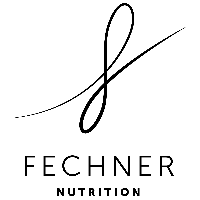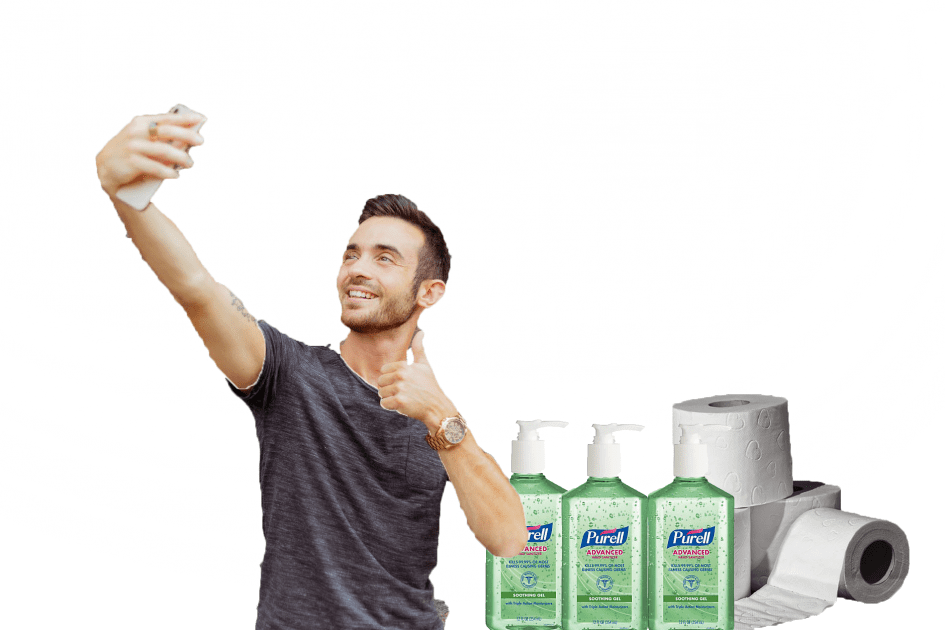
So you are avoiding crowded public places and not touching your face. You are also washing your hands diligently and have stocked up on as much toilet paper and bottled water as you can get your hands on. Now what? Is that all you can do to increase your chance of surviving a possible disease outbreak? All joking aside, there are actually many other important, actionable items to consider that directly affect your ability to survive and thrive during this and any outbreak.
Food as Medicine
The nutrients in the foods we consume make up the building blocks of our very cells, so it stands to reason that what we eat will influence our health and susceptibility to disease. If we do not acquire the amount and type of nutrients needed to produce healthy cells in our bodies, we will lose some amount of functionality and eventually succumb to ill-health in one form or another. A robust immune system, which is made up of many different organ systems in the body, is our best defense against this virus and any other invading organisms. Nourishing our immune system at a cellular level is vitally important, particularly if anyone is in one of the more vulnerable groups, such as the elderly and those with chronic illness.

How to feed yourself and not the virus
One of the most deadly side-effects of a viral infection is the body’s own inflammatory response. Inflammation in small amounts can be helpful as it brings needed blood supply and cellular immune response to a given area in the body; however, if left unchecked, inflammation can cause permanent scarring of the tissues, long-term health issues and pain. Difficulty breathing with inflammation in the lung tissue is one of the major stressors to the body caused by this virus in particular. Focusing on anti-inflammatory foods and avoiding those that are pro-inflammatory should be our top priority. Here are some of the main inflammatory culprits that should be avoided as much as possible before and during an infection:
- grain-based foods containing wheat, barley, oats, rye, rice, corn and other types and forms of grains
- beans and legumes
- vegetable oils, such as canola, soy, safflower, sunflower, etc.
- dairy products, particularly conventionally produced milk that is ultra-pasteurized and homogenized from cows given antibiotics, kept in confinement and given hormones
- processed foods, especially those containing added sugar in the form of cane sugar, corn syrup, high fructose corn syrup and other variations of those
- Sodas and beverages with added sweeteners, preservatives
- artificial coloring and flavoring
- meats produced in feedlots- given antibiotics, fed heavily grain-based diets
- alcoholic beverages
- smoking, vaping and poor air quality environments
Most foods that come in packages lie in one of the above categories. It is safer to purchase fresh foods and take a little extra time to prepare them than to purchase ready-made foods and pre-packaged products. There may be other foods that cause inflammation in some individuals and not others, which is why it is difficult to provide a list that will apply to everyone. Certain chronic conditions are associated with inflammation from specific foods, so if you are someone who suffers from a chronic condition, additional help may be needed to insure that you are not overly taxing your immune system and inflammatory response.

In general the following list of foods will be helpful in reducing inflammation or at least not promoting it, but again, individual needs may vary greatly:
- wild-caught seafood
- organic and pasture-raised meats
- pasture-raised eggs
- organic fruits and vegetables
- properly prepared nuts and seeds (not full of oils, salt and sweeteners)
- probiotic foods such as traditionally fermented sauerkraut, kimchi, pickles, kombucha, home-made yogurt, kefir and fermented dairy products (for those who can tolerate them)
- Healthy fats, such as organic cold-pressed olive oil, avocado oil, coconut oil, organic butter from pastured animals, fish oil, ghee
Quality matters greatly when selecting foods, and not all beef or eggs or vegetables are equal. Knowing the difference between a purchase that is worth your money and one that is going to contribute to health issues is important and a topic that we will cover in future articles.

Special nutrients and supplements to consider
One of the major elements of the immune system lies in the digestive tract. All the various types of microorganisms that reside in our digestive system are known as the microbiome. Having a diverse and healthy microbiome is imperative to a healthy immune system. Ways to feed a healthy microbiome include taking in probiotic foods, which are more effective than supplemental probiotics, and taking in the right kind of starches and fibers so that these microorganisms can feed themselves and proliferate in your body. One of the best ways to do this is to include lacto-fermented foods in your diet. Sauerkraut, kimchi and pickles are some of the most common and appealing foods to keep a healthy microbiome. The issue is that most people are unaware of which brands are actually probiotic and which are basically just jars of vinegar with vegetables floating in them. One clue to keep in mind when shopping is whether the item is in the refrigerated section of the store. Items containing living microorganisms generally need to be refrigerated. Also, items containing vinegar are generally not probiotic. So, if you are unable to make these foods at home, purchase those that are in the refrigerated section and do not contain vinegar as an ingredient to ensure you are actually going to benefit.
For strong, virus-resistant cell-membranes, healthy fats, such as those listed in the anti-inflammatory category, are essential. In addition vitamin E and fish oil are very helpful to build cellular resistance to invaders. Again, quality is important. Most supplements you get at the grocery or drug store are not readily absorbable due to cheap ingredients and coatings that are difficult to break down in the digestive system.

Vitamin D is another unsung hero of the immune system. Without adequate supply of this nutrient, you are putting yourself at risk of viral infection, bacterial infection and a host of chronic illnesses such as depression and cancer. While we can get vitamin D through our skin from sunlight exposure, many of us are not in direct sunlight during the right part of the day with enough of our skin exposed to reap the benefits of this nutrient. Also, if you are in a more northerly area, the sun may not be strong enough during much of the year to allow sufficient exposure for vitamin D production in your skin. Some studies have shown that exposing as much of your skin as possible for about 20 minutes between the hours of 11 and 2 in the afternoon during the warmer months is necessary for adequate intake. During the winter months, this becomes an issue due to weather and the greater distance of the earth from the sun. Supplementation may be necessary as many people are deficient in this nutrient, particularly during this time of year.
A few more supplements to consider are those that help to break down mucus in the body. Having a mucus build up in the lungs contributing to breathing difficulty is one of the dangers of this virus in particular. Selenium, NAC (N-Acetyl Cysteine) and fish oil have all been shown to be effective at breaking down mucus in the body.
There are many different brands and forms of these supplements: some are worthwhile, some are a waste of money, and worse, some are detrimental to your health. Also dosage can vary greatly among individuals because of age, size, general health, other conditions, medications, etc. Some supplements and foods are prohibited for those on certain medications or with certain conditions. You must choose carefully, preferably with the help of a qualified health care provider.

Conclusion
While storage of important necessities is useful during a crisis, creating a healthy storage of nutrients in the body is vital. Even before a potential health crisis such as the Coronavirus outbreak begins, keeping yourself balanced and well-nourished on a regular basis should be a top priority. Once you know that you and your loved ones are in the best possible shape, there is no need for panic or stress when a potential threat arises. Since diet as well as dosages and types of supplements are so individual, it is wise to seek the help of a professional when creating a regime for yourself or a loved one. If you have questions about what you should eat or take based on your own set of variables, feel free to contact us or set up an appointment. We offer personalized, step-by-step plans to meet you wherever you are in your health journey and to get you on track for meeting any challenges to come.











